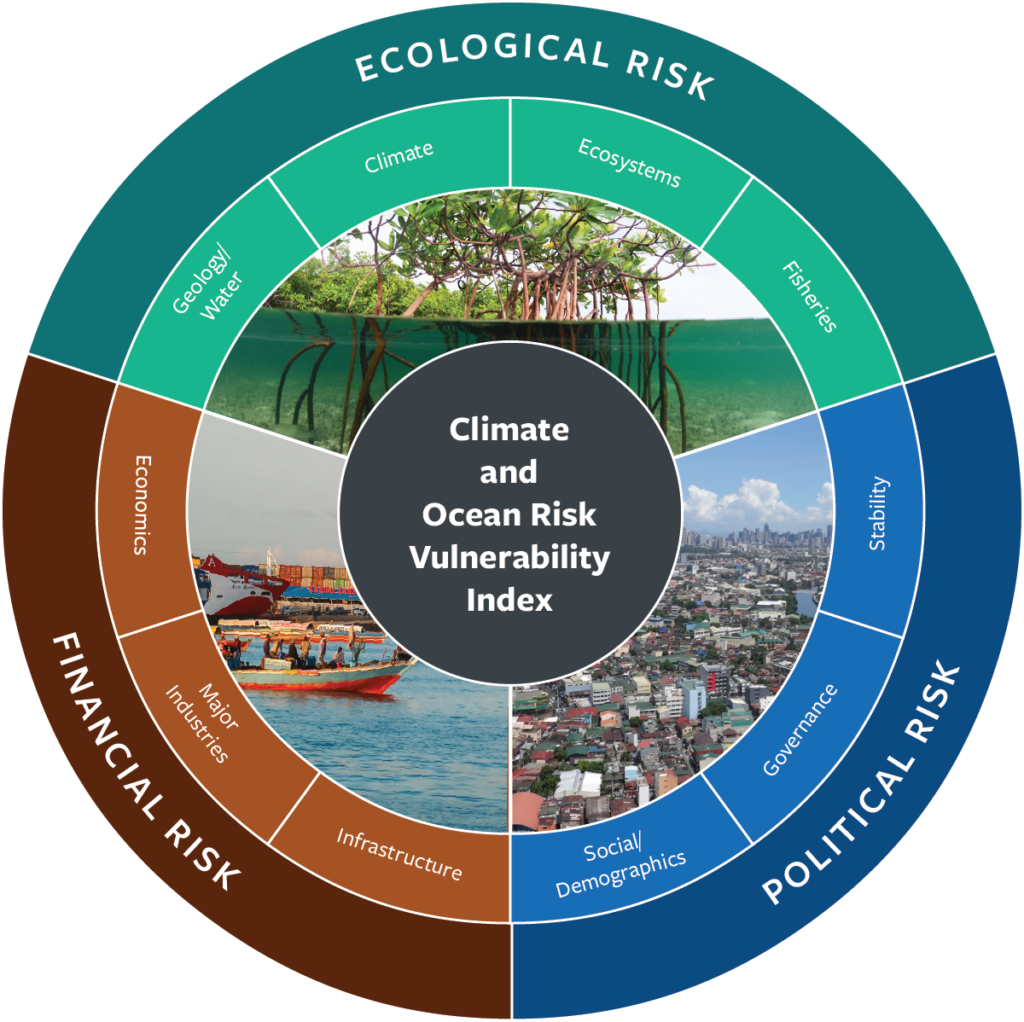Given their location, coastal cities are likely to experience the earliest onset and potentially most severe impacts from climate change. In order for coastal cities to efficiently allocate resources and enact effective adaptation strategies, they must understand their multidimensional climate and ocean risks.
However, these efforts are impeded by data gaps. Data on climate risks is rarely available at the city level. When it does exist, it is often poorly managed and stored in silos that make it difficult to access and use, even for city government officials. This issue is compounded by technical, financial, and capacity gaps, trapping coastal cities in a vicious cycle where they cannot develop holistic strategies to prioritize investment and access the funds needed to implement resilience actions.
To overcome data gaps, CORVI combines remote sensing, empirical data, and expert surveys to provide a holistic, data driven assessment for the coastal city assessed. This data is then combined with local interviews, reports, and academic literature to produce targeted recommendations to build resilience.
The CORVI methodology, including its categories, indicator factors, and use of structured expert judgement, is detailed in regional reports:

